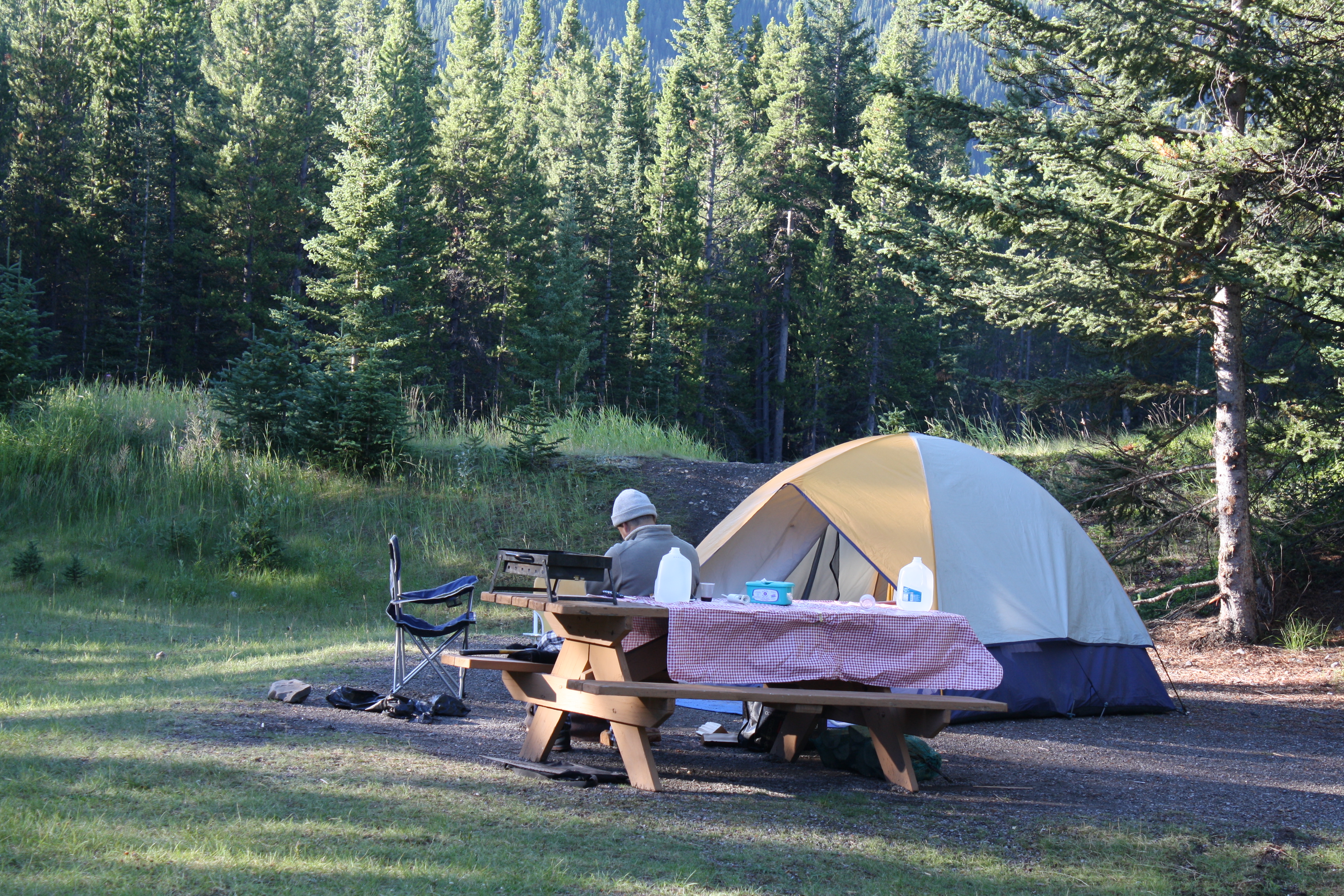
Camping in the Rockies: to Tent or not to Tent?
Summers in Alberta may be short, but camping, including tenting, is highly popular among all ages and all walks of life, for residents and visitors alike.
Are you tempted by a tenting adventure but new to this and a bit unsure whether this is for you and how to go on about it?
With this and some future posts, my goal is to save you some of the teething troubles I went through when I first arrived in Alberta with minimal experience of tenting so that you can enjoy your camping trips from day 1.
On my first solo trips, my campsite was a sorry sight, with a badly set up tent, no fire, and just a can of soup heated up on a borrowed burner for food. I remember looking enviously at roaring fires with delicious barbecue smells on neighbouring campsites and going to sleep early, feeling a bit sorry for myself.
Joining local camping groups through meetup.com gave me great learning opportunities and now I enjoy tenting immensely, whether it is solo or with friends.
First, you need to determine whether tenting could be a suitable option for you. Here are some considerations to help you.
5 advantages of tent camping
1) Inexpensive
– A tent is of course much cheaper to buy or rent than a trailer or a motorhome
– No need to pay for storage space
– No expensive equipment, maintenance, and repairs
– Some campsites charge less for tents than for trailers and motorhomes
2) Easy storage and transport
– Unlike a motorhome or a trailer, there is no need for hauling on the road and no need for storage space
-A tent is easy to pack in the car, even on a bike or in a backpack (for smaller models)
3) Flexibility and ease of use
– A backpacking (ie ultralight) tent can be used for car-camping, backcountry camping, backpacking and bike touring trips which all offer great opportunities in Alberta
– A tent is quick and easy to set up once you know how and when the wind and rain do not interfere.
4) Feeling closer to nature
– There is nothing like feeling all warm and cosy in a fluffy sleeping bag, breathing fresh air and listening to the sounds and silences of the night: a loon calling on the lake, coyotes howling in the distance…
– Many people, including me, I sleep deeper and wake up more refreshed in a tent than in a comfortable bed at home.

5) Environmentally-friendly
Using a tent (or a hammock or a bivvy) is the least carbon-intensive camping option:
– No need for a fuel-guzzling big car or truck for hauling
– No use of a generator and power
– No extra land usage footprint for storage
– Tent manufacturing is less resource- and energy-intensive than trailers and campervans
3 drawbacks of tent camping
Let’s be honest, tent camping sometimes just sucks and is not for everyone. While the rewards are great, you have to be willing to give up some creature comforts and accept a certain sense of vulnerability.
1) Creature comforts
– Not everybody enjoys sleeping on the ground and living without running water and electricity. Also, there are those dreaded trips to the outhouse in the middle of the night…
– Certain levels of comfort can be achieved with glamping (‘glamorous camping’) as we shall see in a future blogpost and this can be a good option for first-timers too.
2) Weather and short season
– Summers are short in Alberta. July and August can be warm and dry or wet and windy. With good equipment, I have camped any time from the Albertan mid-May long weekend (between two ski trips) through to Thanksgiving (brrr, but what a fantastic firepit-cooked turkey!). Camping in the middle of the winter has been possible too, but this is a whole other story.
– When the rain is pouring it is hard not to beg for shelter from neighbours sitting pretty in their campervans. Plus there are those pesky mosquitoes! Shelters are becoming increasingly popular, offering a lounge in the wilderness that protects you from the weather and the insects.

3) Vulnerability – perceived and real
– Being separated from the outside by just a thin layer of canvas can be unnerving, especially in the first few trips.
– The vulnerability is real as shown in a recent but EXTREMELY RARE incident in Banff National Park and we will talk about safety precautions in a future post
How about you?
Have you tented before in Alberta? What were your best or worst experiences?
If you are new to tenting what are your hopes, concerns and questions?
Share in the Comments section

